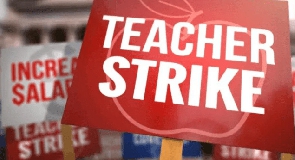The use of strikes as bargaining weapons by labour groups is anachronistic and a violation of the clients’ service charter, Dr. William Mensah-Ansah, an industrialist, has stated.
He said service providers, whether state or private, have performance contracts with their clients; “it is therefore unacceptable for labour groups to use the vulnerability of clients and customers for their personal interests and gains”.
He stated in an interview with the Ghana News Agency in Tema that in the service performance rule of engagement, the employer, the employee, and the customs were the three entities that enter binding, sometimes voluntary or legal, contracts.
Dr. Mensah-Ansah, who quoted the Employer and Business Membership Organizations (EBMOs), an affiliate of the International Labour Organization (ILO), stated that successful enterprises were at the heart of any strategy to create employment and improve living standards to back his position on the critical role of employers and investors in the labour equations.
He noted that labour unions must help create the conditions for enterprise success by influencing the environment, including workers, and by ensuring that labour union members individual performance improves.
Dr. Mensah-Ansah stressed that “The entity called a labour union is absent in the service performance rule of engagement, but employers have accepted the need for workers to form unions or associations to defend their specific interests, but that should not be at the expense of the third party, the client”.
He said customers, clients, and even employers should test the legal system and challenge any worker group that embarks on unproductive and illegal industrial action or uses strike as a bargaining tool.
“When health professionals go on strike, people die; others suffer emotional trauma. Who pays for the loss of life and emotional trauma of families after the Doctors and Nurses have gained what they struggled for?
“Teachers, and Lecturers go on strike and students suffer; workers, both public and civil servants, go on strike and the public suffers for it. In the modern age, outdated means of labour struggles are not acceptable,” Dr. Mensah-Ansah noted.
He added: “In fact, I was getting ready with my lawyers to sue some labour unions for their intended July 10 strike, which became abortive. Someone must test the law on strike.
“Without employers, there would not be any workers for them to form labour unions. Labour and employers must therefore work together through modern means of engagement based on dialogue and healthy negotiations and not with antagonistic, outdated means,” he said.
He called on labour unions to support the labour front through enhancing the labour workforce.
He said whereas the ILO preamble recognized that the failure of any nation to adopt humane conditions of labour was an obstacle in the way of other nations desiring to improve the conditions in their own countries, “inhuman labour agitations could also jeopardize investment”.
He acknowledged that the ILO Preamble also recognized some key principles, for example equal remuneration for work of equal value and freedom of association, and highlights, among others, the importance of vocational and technical education.
General News of Thursday, 20 July 2023
Source: GNA
Use of strike as a bargaining weapon is anachronistic - Industrialist
Entertainment












